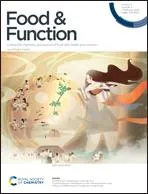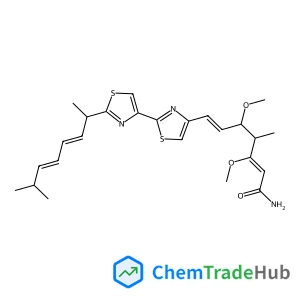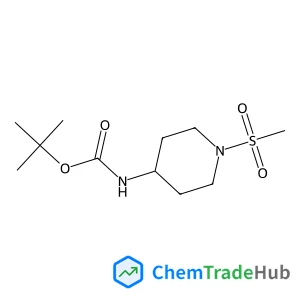Maternal inulin alleviates high-fat diet-induced lipid disorder in offspring by epigenetically modulating hypothalamus feeding circuit-related genes
文献情報
Qian Zhang, Xinhua Xiao, Jia Zheng, Ming Li, Miao Yu, Fan Ping, Tong Wang
Increasing evidence supports the existence of fetal-originated adult diseases. Recent research indicates that the intrauterine environment affects the fetal hypothalamic energy intake center. Inulin is a probiotic that can moderate metabolic disorders, but whether maternal inulin intervention confers long-term metabolic benefits to lipid metabolism in offspring in their adult lives and the mechanism involved are unknown. Here, we used a maternal overnutrition model that was induced by excess energy intake before and during pregnancy and lactation and maternal inulin intervention was performed during pregnancy and lactation. The hypothalamic genome methylation in offspring was analyzed using a methylation array. The results showed that maternal inulin treatment modified the maternal high-fat diet (HFD)-induced increases in body weight, adipose tissue weight, and serum insulin and leptin levels and decreases in serum adiponectin levels. Maternal inulin intervention regulated the impairments in hypothalamic leptin resistance, induced the methylation of Socs3, Npy, and Il6, and inhibited the methylation of Lepr in the hypothalamus of offspring. In conclusion, maternal inulin intervention modifies offspring lipid metabolism, and the underlying mechanism involves the methylation of genes in the hypothalamus feeding circuit.
関連文献
IF 6.367
From zinco(ii) arsaketenes to silylene-stabilised zinco arsinidene complexesIF 6.222
Triboelectric nanogenerators for a macro-scale blue energy harvesting and self-powered marine environmental monitoring systemIF 6.367
Life cycle assessment of plasma-assisted ethylene production from rich-in-methane gas streamsIF 6.367
An overview of latest advances in exploring bioactive peptide hydrogels for neural tissue engineeringIF 6.843
Non-aqueous neptunium and plutonium redox behaviour in THF – access to a rare Np(iii) synthetic precursorIF 6.222
An improved fluorescent protein-based expression reporter system that utilizes bioluminescence resonance energy transfer and peptide-assisted complementationIF 6.222
Metal–organic frameworks: preparation and applications in highly efficient heterogeneous photocatalysisIF 6.367
Coexisting order and disorder within a common 40-residue amyloid-β fibril structure in Alzheimer's disease brain tissueIF 6.222
An aminophosphonate ester ligand-containing platinum(ii) complex induces potent immunogenic cell death in vitro and elicits effective anti-tumour immune responses in vivoIF 6.222
掲載誌
Food & Function

Food & Function provides a unique venue for physicists, chemists, biochemists, nutritionists and other food scientists to publish novel, cutting-edge, original research focussing on food, its nutrients and their relation to human health and nutrition. We welcome research describing the: Physical properties and structure of food and how this relates to sensory perception and human health Biochemical and physiological actions of food components Interactions between foods, gut microbiota and human physiology Nutritional and biological evaluation of food Clinical and population studies using food or food components Development of biomarkers of food intake and effects on human health We also welcome systematic reviews and meta-analyses of existing studies in the literature, provided these are objective and scientifically valid Food in this context is defined as materials of plant, animal or mineral origin, which are consumed orally (by humans) for pleasure and to sustain growth and vital processes. Examples of research topics that are of interest to be published in Food & Function are: Chemistry and physics of food components and digestion processes Relationship between the physical properties/structure of food and nutrition and human health - for example, impact of food matrix or processing on nutrient release and uptake Molecular properties and physiological effects of food components (nutrients, fibres, essential micronutrients, phytochemicals, bioactives, food substitutes, novel ingredients, allergens, flavours and fragrances) Nutritional and health effects of food including bioavailability and metabolism assessment of food components (nutrients, micronutrients and other microconstituents) Efficacy and mechanisms of food constituents in the body - including biomarkers of intakes, exposure and effects Impacts of foods/food components on gut microorganisms and human physiology - For example impact of fermented foods Role of nutrition and diet in human disease prevention and development Cellular and molecular effects/mechanisms of food/food components image block The following types of research are not within the scope of Food & Function: Research relating to traditional herbal medicines, medicinal plants or active compounds extracted from such plants (materials that are primarily consumed as medicine, i.e. the intended purpose is primarily to treat, cure or prevent a non-deficiency disease) or relating to foods not recognised as human diet contributors Animal nutrition research that is not primarily designed as a model to benefit human nutrition (for example, studies of growth/accretion, heat stress, weaning, ruminant digestion, meat quality, etc.) Treatments administered by non-oral routes such as injection (subcutaneous, intramuscular, intraperitoneal, etc.), dermal/transdermal, rectal, inhalation, nasal, etc. Exceptions are when such routes of administration are used for mechanistic/control purposes in the experimental design Pharmacological/pharmaceutical approaches: Encapsulation, emulsification and/or pure controlled release of compounds or bioactives that do not come directly from edible foods, such as dietary supplements - these are better suited to a pharmaceutical journal In vitro or in vivo studies with poorly defined (insufficiently characterised) extracts and studies without appropriate controls will not be considered Cells studies not considering the metabolism of food components ingested – for example, irrelevant exposure of cells to compounds not present in the body after absorption Manuscripts with only a fully theoretical/bioinformatic approach and without appropriate support from analytical evidence will not be considered for publication Studies focussing solely on food engineering, preservation and sustainable technologies – these can be published in our companion journal Sustainable Food Technology Pure food analysis - these can be published in Analytical Methods
おすすめサプライヤー
 辽宁华兴グループ化学株式会社
辽宁华兴グループ化学株式会社 襄樊ノール化学有限公司
襄樊ノール化学有限公司 シанシー・𝕏앳・Türkiye 自動化機器有限公司
シанシー・𝕏앳・Türkiye 自動化機器有限公司 Macylab Instruments Inc.
Macylab Instruments Inc. 建德市永固塑料設備厂
建德市永固塑料設備厂 OTTO KLEIN GMBH
OTTO KLEIN GMBH DECKMA HAMBURG GmbH
DECKMA HAMBURG GmbH 山东嘉聯新素材有限公司
山东嘉聯新素材有限公司 山東ケミコ新材料有限公司
山東ケミコ新材料有限公司 陕西缔都医薬化工有限公司
陕西缔都医薬化工有限公司










![4079-26-9 - 6,11-Dihydro[1]benzothiopyrano[4,3-b]indole 4079-26-9 - 6,11-Dihydro[1]benzothiopyrano[4,3-b]indole](/structs/407/4079-26-9-7725.webp)

![59156-70-6 - 1,1'-[(1,6-Dioxo-1,6-hexanediyl)bis(oxy)]di(2,5-pyrrolidinedione) 59156-70-6 - 1,1'-[(1,6-Dioxo-1,6-hexanediyl)bis(oxy)]di(2,5-pyrrolidinedione)](/structs/591/59156-70-6-0f4b.webp)

